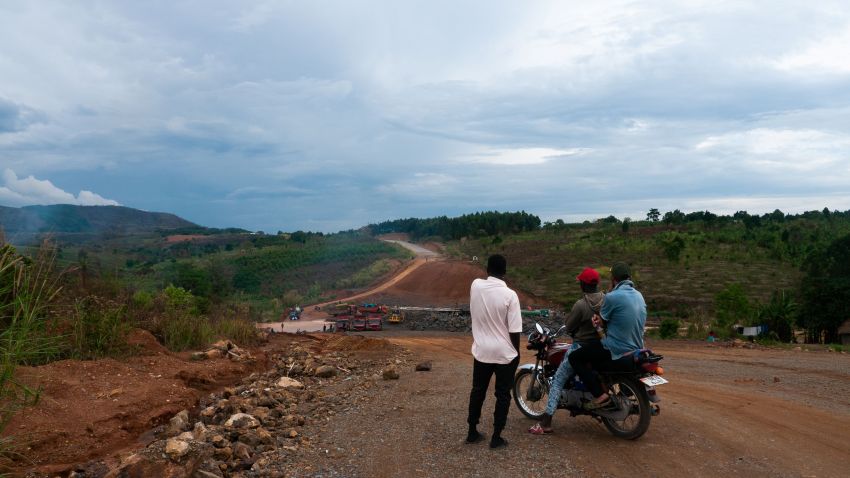BULIISA, HOIMA and KAMPALA, Uganda—A wire fence about 6 feet high rings Fred Balikenda’s house, located in western Uganda’s rural Buliisa district, with a single entrance leading in and out. It’s the sole blight on an otherwise verdant landscape, where a breeze from nearby Lake Albert cools the air and serene livestock graze. But in the distance, the whir of construction can be heard, and vehicles loaded with building equipment rumble down newly paved roads.
Balikenda’s modest home sits on land set aside for the Tilenga project: a drilling field and central processing facility crucial to Uganda’s oil operations. His property will soon become part of a network of hundreds of wells feeding the East African Crude Oil Pipeline, or EACOP—a 900-mile behemoth ferrying petroleum to the Tanzanian coast, from where it will be shipped to international markets. The French company TotalEnergies, which holds a 62 percent stake in the pipeline, has described the project as a financial boon, sure to bring prosperity to the region.
But there is a problem. As preparations for oil exports advance, Balikenda is refusing to leave his gated property. TotalEnergies surveyed his home in 2017, promising to soon compensate him for the land on which his family has lived for generations. Balikenda agreed. Then last year, with preparations for drilling ramping up, the company asked him to move into temporary housing until construction of his new home was completed. When Balikenda refused, not wanting further disruptions to his life, the company erected the fence, cutting his home off from the land where his crops grow and animals graze , in what he claims was an act of intimidation. He says that with only one way to get in and out of his property, his movements have been restricted, making it harder for him to tend his land as he once did. His pigs died due to his inability to feed them, and when money from his farm dried up, he had to stop sending his children to school. A written complaint made by Balikenda and seen by World Politics Review also alleges that the fencing was illegal and bemoans the noise and dust caused by construction.

